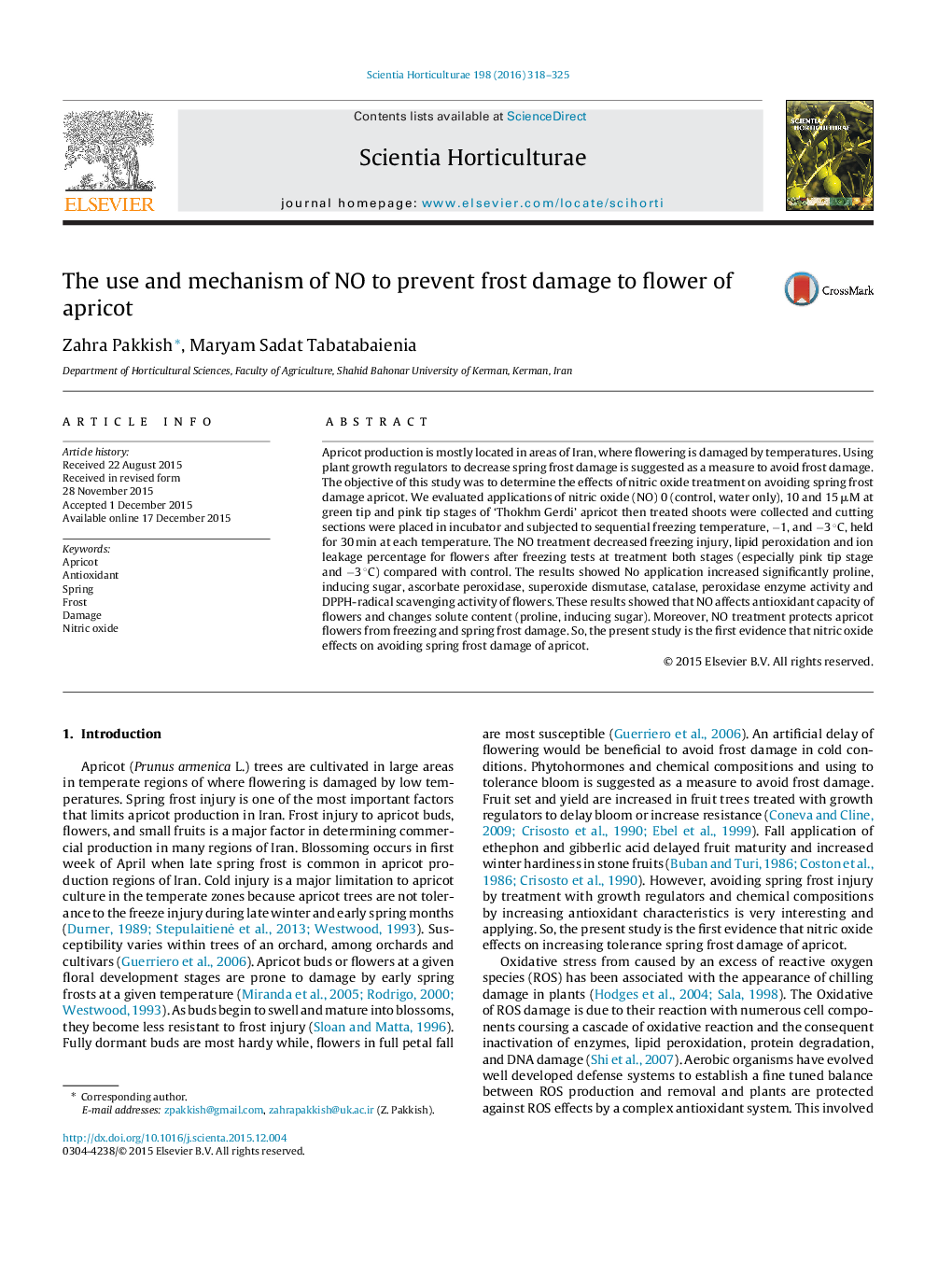| Article ID | Journal | Published Year | Pages | File Type |
|---|---|---|---|---|
| 6406574 | Scientia Horticulturae | 2016 | 8 Pages |
â¢NO reduced chilling injury of apricot buds during growth season.â¢Application of NO induced activities of CAT, POD, SOD and APX enzyme.â¢Decreasing lipid peroxidation and peroxide hydrogen of apricot buds.â¢NO treatment effects depend on increase of DPPH radical scavenging activity.
Apricot production is mostly located in areas of Iran, where flowering is damaged by temperatures. Using plant growth regulators to decrease spring frost damage is suggested as a measure to avoid frost damage. The objective of this study was to determine the effects of nitric oxide treatment on avoiding spring frost damage apricot. We evaluated applications of nitric oxide (NO) 0 (control, water only), 10 and 15 μM at green tip and pink tip stages of 'Thokhm Gerdi' apricot then treated shoots were collected and cutting sections were placed in incubator and subjected to sequential freezing temperature, â1, and â3 °C, held for 30 min at each temperature. The NO treatment decreased freezing injury, lipid peroxidation and ion leakage percentage for flowers after freezing tests at treatment both stages (especially pink tip stage and â3 °C) compared with control. The results showed No application increased significantly proline, inducing sugar, ascorbate peroxidase, superoxide dismutase, catalase, peroxidase enzyme activity and DPPH-radical scavenging activity of flowers. These results showed that NO affects antioxidant capacity of flowers and changes solute content (proline, inducing sugar). Moreover, NO treatment protects apricot flowers from freezing and spring frost damage. So, the present study is the first evidence that nitric oxide effects on avoiding spring frost damage of apricot.
